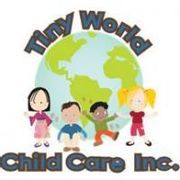What Are the Differences Between Breast Milk & Formula?

Infant care is an essential aspect of parenting, especially during the first few months of a baby's life. Parents are faced with numerous decisions, including whether to breastfeed or use formula. Breast milk is the natural choice, while formula feeding is a practical alternative. This guide explores the differences between the two and their advantages.
What Is Breast Milk?
Breast milk is the natural milk produced by a woman's body after childbirth. It is a complete food source that provides all the essential nutrients a baby needs in the first six months of life. Breast milk is rich in antibodies that help protect infants from infections and illnesses, making it an essential part of infant care.
What Are the Benefits of Breastfeeding?
Breastfeeding is beneficial for both the mother and baby. For the baby, breast milk helps build a strong immune system, prevents allergies, and reduces the risk of sudden infant death syndrome (SIDS). Breastfeeding also promotes bonding between the mother and baby and helps with the baby's cognitive development.
For the mother, breastfeeding can help the uterus return to its pre-pregnancy size, reduce the risk of breast and ovarian cancer, and aid in postpartum weight loss. In addition, breastfeeding releases hormones that promote relaxation and bonding with the baby.
What Is Formula?
Infant formula is a commercially prepared substitute for breast milk. It is made from a combination of proteins, fats, and carbohydrates that are similar to breast milk. Infant formula also contains added vitamins and minerals to support a baby's growth and development.
What Are the Benefits of Formula?
Formula feeding is a practical alternative to breastfeeding. It allows other family members to participate in feeding and offers flexibility for working mothers. Formula-fed babies also tend to sleep longer and more soundly, which can be beneficial for parents. Formula feeding is also beneficial for mothers who have difficulty breastfeeding or cannot produce enough milk. Additionally, since formula takes longer to digest, formula-fed babies don’t have to eat as frequently.
Both breast milk and formula have their benefits, and the decision regarding which to choose is a personal one. At Tiny World Child Care Inc. in Brookline, MA, their experienced caregivers provide quality infant care and support for both breastfeeding and formula-feeding mothers. They provide a nurturing environment that aims to be a second home for families. Plus, they promote diversity and are a bilingual daycare center that teaches children Spanish. To get in touch, call them at (617) 232-0115 or visit their website.
About the Business
Have a question? Ask the experts!
Send your question

